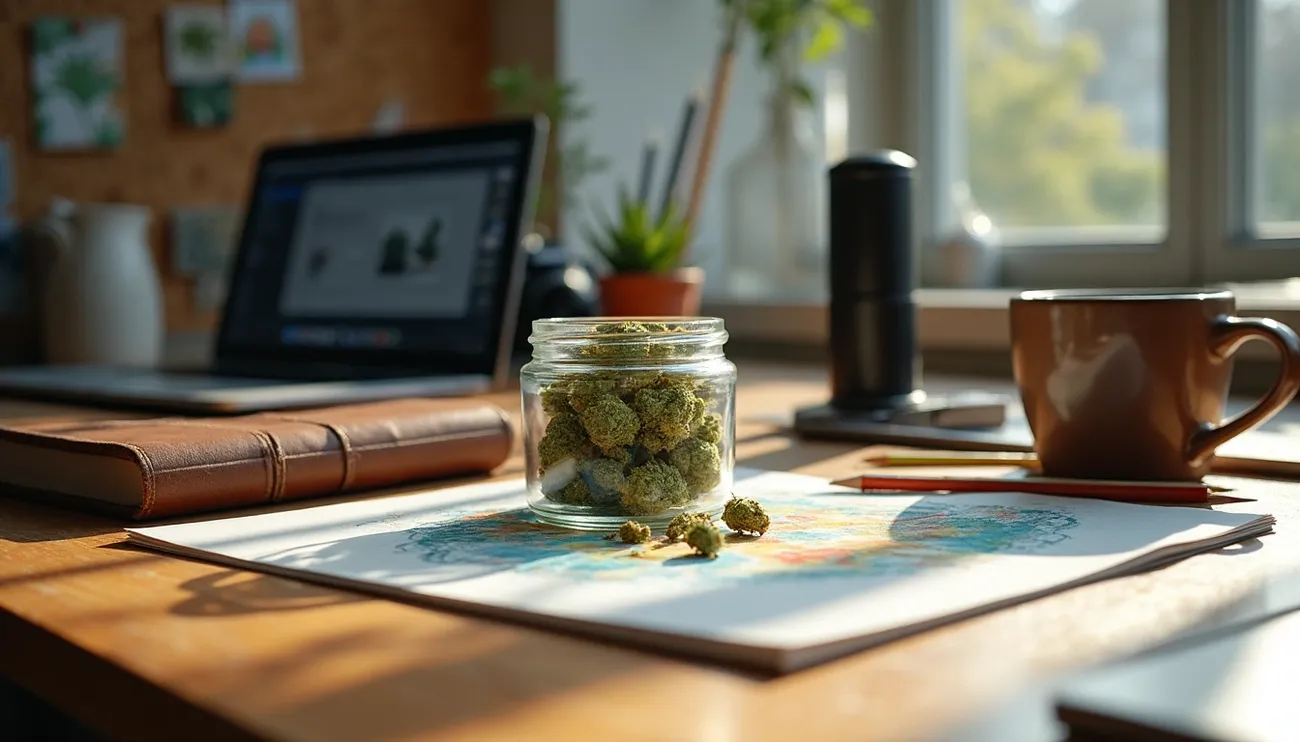Exploring Cannabis: A Natural Aid for Stress Relief
Introduction
In today’s fast-paced world, stress relief has become more than a necessity; it’s a vital part of maintaining overall health and well-being. People are constantly on the lookout for effective ways to unwind from daily pressures. Enter cannabis, a plant that has been both celebrated and contested over the years. While many know cannabis for its recreational uses, a growing body of research highlights its potential as a natural remedy for stress. This article will delve into the nature of cannabis, its potential benefits and risks in stress relief, and how you can make informed choices when considering its use.
Understanding Cannabis
Cannabis, often referred to as marijuana, is a plant that has been utilized for centuries, offering a range of applications from medicinal to recreational. Its active compounds, primarily cannabinoids such as THC (tetrahydrocannabinol) and CBD (cannabidiol), interact with the human body’s endocannabinoid system. This complex cell-signaling system plays a crucial role in regulating physiological and cognitive processes, including mood, memory, and pain sensation.
While THC is known for its psychoactive effects, leading to the “high” often associated with cannabis, CBD is non-psychoactive and draws attention for its potential therapeutic benefits. The plant’s dichotomy—its ability to induce both relaxation and euphoria—piques interest as a natural aid for stress relief.
The Benefits and Risks of Cannabis for Stress Relief
The potential benefits of cannabis in stress management have begun to spark enthusiasm in both clinical and casual contexts. A study by the University of Illinois at Chicago discovered that low doses of THC can reduce stress, suggesting that cannabis can support stress relief when consumed responsibly. The ability of cannabis products, particularly those rich in CBD, to ease anxiety and promote relaxation has been documented in various reports and user anecdotes.
Many consumers report feeling a sense of calm and relaxation after using cannabis, indicating its usefulness in stress-mitigated environments, from crowded commutes to the comfort of one’s home. However, the experience is not universal. While some users find relief, others may experience heightened anxiety or paranoia, especially with higher doses of THC. The variability in individual responses points to the importance of understanding one’s personal limits and the nuances of different cannabis strains or products.
It’s also essential to recognize potential pitfalls. Regular or excessive cannabis use can lead to dependency and may disrupt mental health, exacerbating anxiety rather than alleviating it. Concerning psychoactive effects may impair an individual’s ability to perform daily tasks competently. Thus, while cannabis presents numerous opportunities for exploration in stress management, using it with mindfulness is crucial.
Practical Tips for Using Cannabis for Relaxation
For those considering cannabis as a means to de-stress, approaching it with informed caution is advised. Here are some practical tips to help navigate your journey with cannabis:
- Start Low and Go Slow: If you’re inexperienced with cannabis, begin with a low-THC product and gradually increase dosage as you become more familiar with its effects on your body.
- Choose the Right Strain: Different strains cater to various needs. Strains high in CBD and low in THC might be better suited for those specifically targeting stress without the desire for psychoactive effects.
- Stay Informed: Laws regarding cannabis use vary by location, so ensure you are compliant with local regulations. Additionally, informing yourself about the types of cannabis and their components can help make beneficial, safe choices.
- Consult with Professionals: Seek advice from healthcare providers or cannabis specialists who understand both the benefits and potential risks. They can offer insights tailored to individual health profiles.
- Set the Mood: Combine cannabis use with other relaxation techniques like deep breathing, meditation, or a warm bath to enhance its calming effects.
By adopting a careful, intentional approach, you can unlock the stress-relieving potential of cannabis in a way that complements your lifestyle without compromising well-being.
Conclusion
Cannabis holds promise as a natural aid for stress relief, attributed to its complex interaction with human biology. Understanding its multifaceted nature, benefits, and risks is fundamental to using it wisely and effectively. While cannabis can function as a helpful partner in stress management, responsible and informed use is key to maximizing benefits and minimizing adverse effects.
As you explore the possibilities cannabis offers for stress relief, consider exploring further resources to expand your knowledge or engage with communities discussing their experiences. If you’ve found this article helpful, share your thoughts and insights in the comments. Continuing the conversation can lead to better understanding and more personalized approaches to using cannabis as a stress-relief tool.
FAQ: Cannabis for Relaxation
What strains of cannabis are best for relaxation?
Indica-dominant strains are typically best for relaxation, including popular ones like Granddaddy Purple, Northern Lights, and Blueberry.
How does cannabis help with relaxation?
Cannabis can help with relaxation by interacting with the endocannabinoid system, promoting a sense of calm, and reducing stress and anxiety.
Is it legal to use cannabis for relaxation?
The legality of cannabis varies by location. It’s important to check your local laws regarding recreational or medicinal use.
What are the potential side effects of using cannabis for relaxation?
Common side effects may include dry mouth, dizziness, altered perception, and increased appetite. It can also cause anxiety in some users.
How much cannabis should I use to relax?
Dosage varies based on individual tolerance, strain potency, and delivery method. Start with a low dose and gradually increase as needed.
Related: cannabis for better sex
Share this content:



